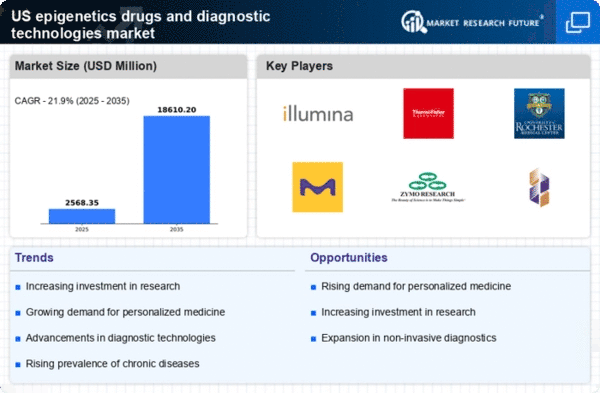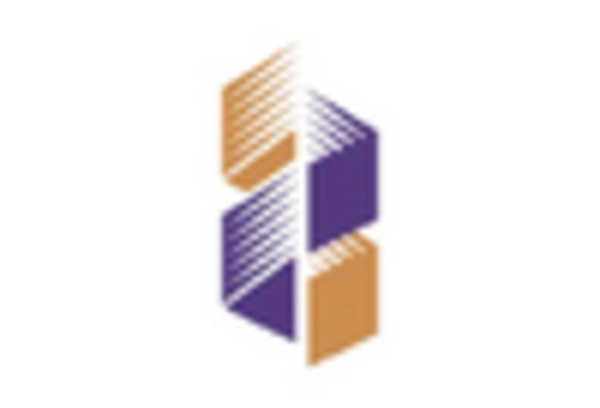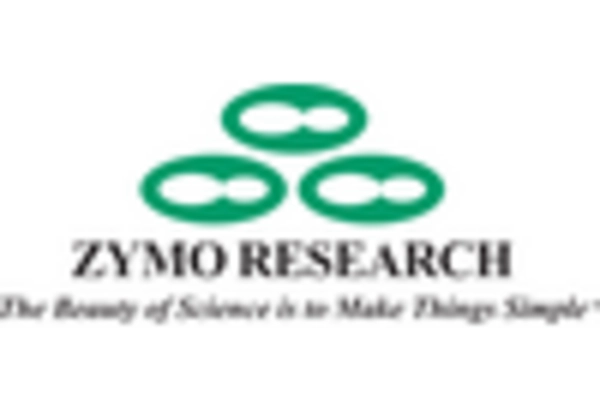Increasing Prevalence of Chronic Diseases
The rising incidence of chronic diseases such as cancer, diabetes, and cardiovascular disorders in the US is a significant driver for the epigenetics drugs-diagnostic-technologies market. As these diseases often have complex genetic and epigenetic underpinnings, there is a growing need for innovative diagnostic tools and targeted therapies. According to the CDC, chronic diseases account for 7 of the 10 leading causes of death in the US, highlighting the urgent need for effective treatment options. This trend is likely to propel investments in epigenetic research, as healthcare providers seek to develop personalized treatment plans that address the unique epigenetic profiles of patients. Consequently, the demand for epigenetics-based diagnostics and therapeutics is expected to rise, fostering growth in the epigenetics drugs-diagnostic-technologies market.
Regulatory Support for Epigenetic Therapies
Regulatory bodies in the US are increasingly recognizing the potential of epigenetic therapies, which is fostering a more favorable environment for the epigenetics drugs-diagnostic-technologies market. The FDA has established frameworks for the approval of epigenetic drugs, which encourages pharmaceutical companies to invest in this area. For instance, the FDA's Breakthrough Therapy designation can expedite the development of drugs that show promise in treating serious conditions. This regulatory support not only enhances the credibility of epigenetic therapies but also attracts funding from investors looking to capitalize on emerging opportunities. As a result, the epigenetics drugs-diagnostic-technologies market is likely to experience accelerated growth due to the increasing number of approved therapies and diagnostics.
Investment in Precision Medicine Initiatives
The US government and private sector are investing heavily in precision medicine initiatives, which is a key driver for the epigenetics drugs-diagnostic-technologies market. Programs such as the Precision Medicine Initiative aim to tailor medical treatment to individual characteristics, including genetic and epigenetic factors. This approach is gaining traction as it promises to improve treatment efficacy and reduce adverse effects. The National Institutes of Health (NIH) has allocated substantial funding to support research in this area, with billions of dollars dedicated to advancing precision medicine. As these initiatives continue to evolve, they are likely to create new opportunities for the development of epigenetic diagnostics and therapeutics, thereby propelling growth in the epigenetics drugs-diagnostic-technologies market.
Rising Awareness of Epigenetics in Healthcare
There is a growing awareness of the role of epigenetics in healthcare among both practitioners and patients, which is driving the epigenetics drugs-diagnostic-technologies market. Educational initiatives and scientific publications are increasingly highlighting the importance of epigenetic factors in disease prevention and treatment. This heightened awareness is leading to a greater demand for epigenetic testing and personalized medicine solutions. As healthcare providers become more knowledgeable about the implications of epigenetics, they are more likely to incorporate these insights into clinical practice. Consequently, the market for epigenetics-based diagnostics and therapeutics is expected to expand, as patients seek out innovative solutions that align with their health needs.
Technological Advancements in Genomic Research
Recent technological advancements in genomic research are transforming the landscape of the epigenetics drugs-diagnostic-technologies market. Innovations such as CRISPR-Cas9 gene editing and next-generation sequencing (NGS) have significantly enhanced the ability to study epigenetic modifications and their implications in various diseases. These technologies enable researchers to identify potential biomarkers for early diagnosis and treatment, thereby improving patient outcomes. The market for NGS alone is projected to reach approximately $10 billion by 2026, indicating a robust growth trajectory. As these technologies become more accessible and cost-effective, they are likely to drive further investment in epigenetic research and development, ultimately benefiting the epigenetics drugs-diagnostic-technologies market.

















Leave a Comment